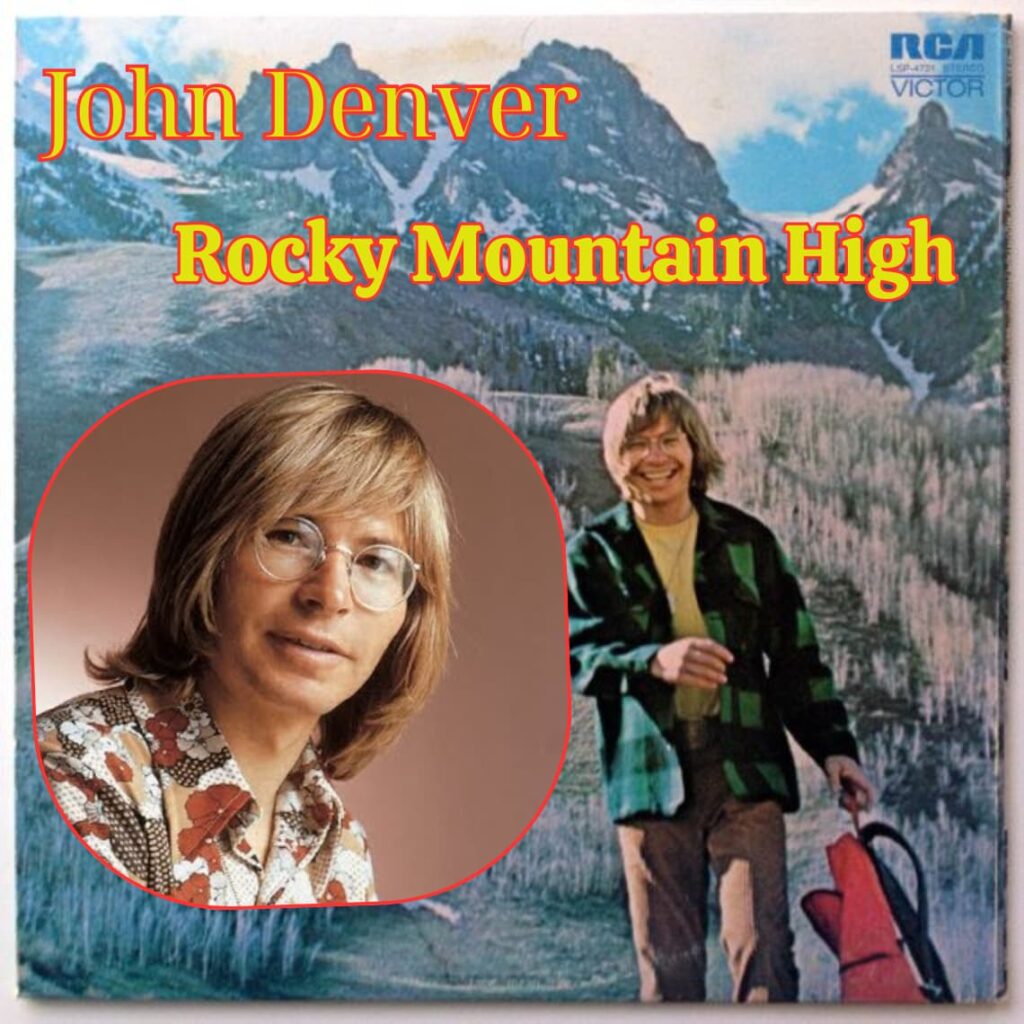
The Anthem of a Generation’s Yearning for the Wild
Ah, John Denver. Just hearing that name, a cascade of memories, a warmth like a forgotten summer day, washes over you, doesn’t it? And then, if I whisper “Rocky Mountain High,” suddenly you’re there. You’re transported back to a time when the world felt a little less complicated, a little more open, and the yearning for something pure, something untouched by the urban sprawl, resonated deep within your soul. It wasn’t just a song; it was a feeling, an escape, a pilgrimage to a promised land of towering peaks and crisp, clean air.
This wasn’t some fleeting pop hit that came and went with the season. “Rocky Mountain High” was a phenomenon. Released in 1972, it swiftly ascended the Billboard Hot 100, peaking at an impressive number nine. It wasn’t just a commercial success; it became an anthem. For those of us who lived through those years, it was impossible to avoid. It spilled from every radio, hummed in every car, and echoed through countless kitchens and living rooms. It was more than music; it was a soundtrack to an era defined by a growing environmental consciousness, a return-to-nature movement, and a desire for authenticity in a rapidly changing world. The song’s success wasn’t just about its catchy melody or John Denver‘s angelic voice; it was about the profound chord it struck with a generation eager to reconnect with something primal and real.
The story behind “Rocky Mountain High” is as authentic as the man who sang it. It wasn’t a product of a songwriting committee or a cynical attempt to cash in on a trend. It was born from John Denver‘s deeply personal experience and profound love for the state of Colorado, where he had moved in the late 1960s. He found his sanctuary there, a spiritual home amidst the majestic Rockies. The song, co-written with Mike Taylor, was a direct reflection of his immersion in that natural beauty, the sense of wonder and renewal he felt in the mountains. He wasn’t just singing about a place; he was singing about a feeling of belonging, of being truly alive. It was a testament to the transformative power of nature, a kind of spiritual awakening that many of us, perhaps unknowingly, longed for.
The lyrics themselves are a tapestry woven with vivid imagery and heartfelt emotion. “He left yesterday behind him, you might say he was born again, you might say he found a key for every door.” These lines speak to a universal desire for reinvention, for shedding the burdens of the past and embracing a new beginning. The “high” isn’t just about altitude; it’s a spiritual elevation, a release from the mundane. It’s about finding clarity, purpose, and a sense of awe in the vastness of the natural world. Denver sings of “a feeling in your heart you can’t deny,” and for many of us, that feeling was a deep resonance with the call of the wild, a yearning for simplicity and a connection to something larger than ourselves. It spoke to the adventurer within, the dreamer who looked at the horizon and saw not an end, but an invitation.
But beyond its personal origins and evocative lyrics, “Rocky Mountain High” holds a particularly poignant place in history. It became so intrinsically linked with Colorado and its natural beauty that in 2007, it was officially designated one of Colorado’s two state songs. This wasn’t just a symbolic gesture; it was an acknowledgment of the song’s enduring cultural impact, its ability to capture the spirit of a place and its people. It transcended its musical form to become part of the very fabric of the state.
For us, the older readers, this song isn’t just a memory; it’s a touchstone. It transports us back to a time of discovery, of idealism, and perhaps, of a simpler existence. We remember cruising down highways with the windows down, the wind in our hair, singing along at the top of our lungs. We remember dreaming of escaping to our own “Rocky Mountain High,” wherever that might be. It reminds us of a time when the natural world still held a profound mystique, a place of solace and adventure. “Rocky Mountain High” remains a powerful testament to the enduring power of nature, the human spirit’s yearning for freedom, and the timeless artistry of a man who truly found his voice amidst the peaks. It’s a song that, much like the mountains themselves, continues to stand tall, unwavering in its beauty and its message.